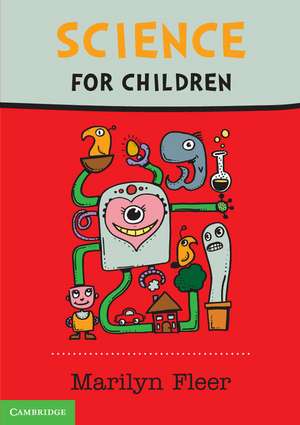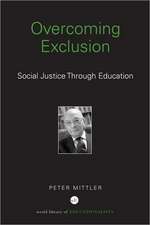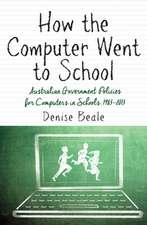Science for Children
Autor Marilyn Fleeren Limba Engleză Paperback – 7 sep 2015
Preț: 419.70 lei
Preț vechi: 456.19 lei
-8% Nou
Puncte Express: 630
Preț estimativ în valută:
80.31€ • 82.98$ • 66.81£
80.31€ • 82.98$ • 66.81£
Carte tipărită la comandă
Livrare economică 19 martie-02 aprilie
Preluare comenzi: 021 569.72.76
Specificații
ISBN-13: 9781107548701
ISBN-10: 1107548705
Pagini: 360
Dimensiuni: 177 x 250 x 15 mm
Greutate: 0.6 kg
Editura: Cambridge University Press
Colecția Cambridge University Press
Locul publicării:Melbourne, Australia
ISBN-10: 1107548705
Pagini: 360
Dimensiuni: 177 x 250 x 15 mm
Greutate: 0.6 kg
Editura: Cambridge University Press
Colecția Cambridge University Press
Locul publicării:Melbourne, Australia
Cuprins
Part I. Research Foundation for Developing a Personal Approach to Teaching Science: 1. Science as a human endeavour; 2. Researching children's understanding and ways of learning; Part II. Transmission and Discovery Approaches to Teaching and Learning in Science: 3. A transmission approach to teaching science; 4. A discovery based approach to learning science; Part III. Inquiry-Based Approaches: 5. Inquiry-based approach to teaching science; 6. Inquiry-based approach to learning science; 7. Teaching for conceptual change: constructivism; Part IV. Inclusive Constructions of Knowledge across and within Communities and Cultures: 8. Conceptual play, and contextual and conceptual intersubjectivity: cultural-historical approaches to learning science; 9. Culturally sensitive teaching: sustainability and relatedness in our ecosystems; Part V. Leadership in Science: 10. Becoming a leader of science: situating yourself.
Notă biografică
Descriere
Designed to prepare future educators for practice, this text challenges students and offers practical classroom-based strategies for their teaching careers.













